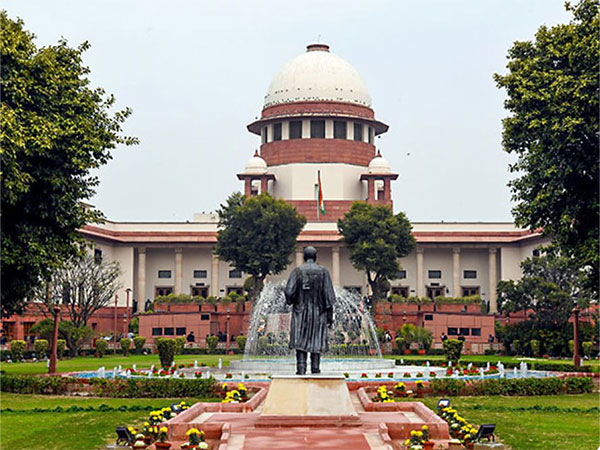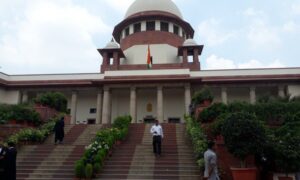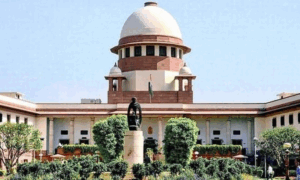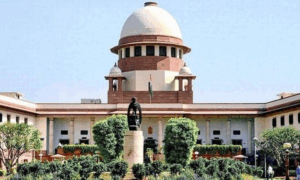
The Centre has opposed in the Supreme Court a plea seeking life ban on convicted politicians, saying imposing such a disqualification was solely within the domain of Parliament.
In an affidavit filed in court, the Centre said the prayer in a plea, seeking the same, amounted to re-writing of the statute or directing Parliament to frame a law in a particular manner which was wholly beyond the powers of judicial review.
“The question whether a life-time ban would be appropriate or not is a question that is solely within the domain of the parliament,” the affidavit said.
By confining the operation of penalty to an appropriate length of time, deterrence was ensured while undue harshness was avoided, it added.
As reported by PTI , There was, said the Centre, nothing inherently unconstitutional in limiting the effect of penalties by time and it was a settled principle of law that penalties were limited either by time or by quantum.
“It is submitted that issues raised by the petitioner have wide ranging ramifications and clearly fall within the legislative policy of Parliament and the contours of judicial review would be suitably altered in such regard,” the affidavit said.
The plea in the top court filed by advocate Ashwini Kumar Upadhyay seeks a life ban on convicted politicians aside from the expeditious disposal of criminal cases against MPs and MLAs in the country.
In its affidavit, the Centre underlined the apex court had consistently held that the legislative choice over one option or the other couldn’t be questioned in courts over its efficacy or otherwise.
Under Section 8 (1) of the Representation of the People Act, 1951, the period of disqualification was six years from the date of conviction or in case of imprisonment, six years from the date of release, it added.
“The disqualifications made under the impugned sections are limited by time as a matter of parliamentary policy and it would not be appropriate to substitute the petitioner’s understanding of the issue and impose a lifetime ban,” it said.
The Centre said as a matter of judicial review, the court could declare the provisions to be unconstitutional, however, the relief sought by the petitioner effectively sought to read “life-long” instead of “six years” in all sub-sections of Section 8 of the Act.
It said lifetime disqualification was the maximum that could be imposed under the provisions and such a discretion was “certainly within the power of Parliament”.
“However, it is one thing to say that a power exists and another to say that it must necessarily be exercised in every case,” the Centre argued.
[the_ad id=”55722″]


















